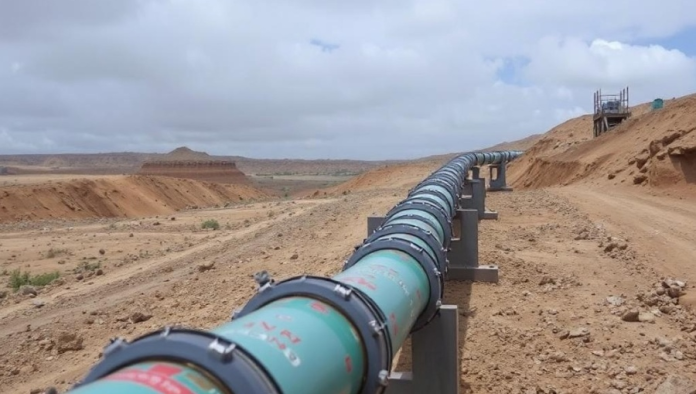The $25 billion Nigeria-Morocco Gas Pipeline (NMGP) project accelerated towards its construction phase following decisive intergovernmental agreements, positioning itself as a cornerstone of Africa’s energy sovereignty, according to bne IntelliNews.
Recent high-level meetings in Rabat culminated in a critical memorandum of understanding between Nigeria’s National Petroleum Company Limited (NNPCL), Morocco’s National Office of Hydrocarbons and Mines (ONHYM), and Togo’s SOTOGAZ, finalising partnerships across all transit nations for the 6,000-kilometre infrastructure initiative.
This transcontinental conduit, also designated the African Atlantic Gas Pipeline (AAGP), will stretch from Nigeria’s Niger Delta to Moroccan export terminals, linking 13 coastal West African economies while supplying gas inland to Niger, Burkina Faso, and Mali.
Morocco’s Minister of Energy Transition Leïla Benali confirmed the imminent launch of the project’s $6 billion first phase, which will establish a North-South backbone from Nador to Dakhla in Moroccan-administered Western Sahara. Upon completion, the pipeline will transport 30 billion cubic metres of gas annually, with holding companies overseeing three distinct geographical sections through specialised project entities.
The pipeline’s trajectory will trace the Atlantic coastline through Benin, Togo, Ghana, Côte d’Ivoire, Liberia, Sierra Leone, Guinea, Guinea-Bissau, Gambia, Senegal, and Mauritania before reaching Morocco. From there, it will integrate with the existing Maghreb-Europe Pipeline, creating a seamless export channel into European gas networks.
Endorsed at December’s Economic Community of West African States (ECOWAS) summit, the intergovernmental agreement delineates national responsibilities for construction, security, and revenue sharing.
Financial structuring advances amid robust investor interest, with projected returns exceeding 12% attracting specialist funds and multilateral institutions. The United Arab Emirates emerged as a key financier, aligning with its intensified African energy investments following recent free-zone reforms and capital market expansions.
